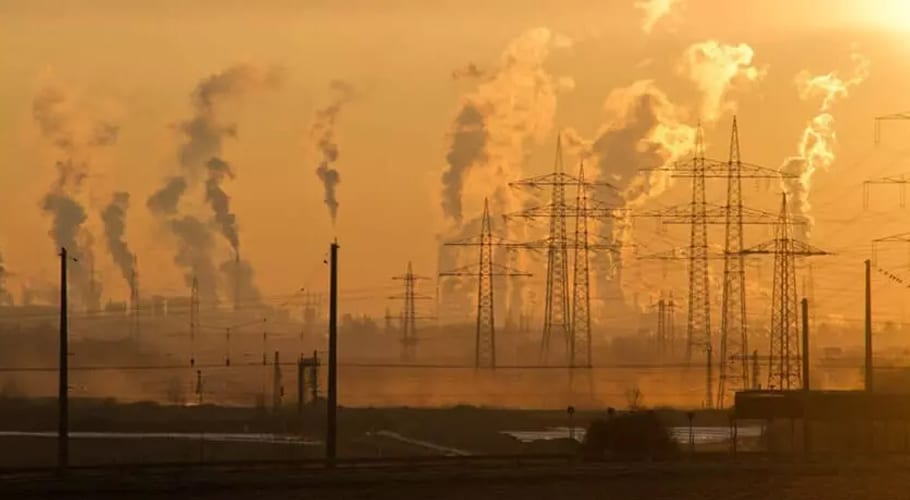![]() Follow Us on Google News
Follow Us on Google News
Climate change presents the most reflective challenge ever to have confronted social, human, political and economic systems in the world. With its grave impact on the people and environment, climate change is one of the major threats to economic stability. Heatwaves make us less capable to work and diminish productivity.
Cyclones, hurricanes and typhoons destroy millions of populations, leaving people in absolute poverty after pitilessly sweeping away their communities. Droughts shrink harvests, further complicating the difficult task of feeding the global population, which is expected to reach 11 billion by 2050.
Climate change has become a problem of every country in the world and the international community needs to work together to solve it. History will remember this decade as the climate turning point, the moment we lastly woke up to the reality that despite (and because of) distress like coronavirus, decarbonization the diminution of carbon dioxide emissions is now inevitable.
World Climate Summit
World leaders from 40 countries, 17 of them responsible for four-fifths of the world’s hothouse gas emissions, held a virtual summit convened by US President Joe Biden on April 22.
This summit explicitly devised to make up for the time lost by America’s withdrawal from the Paris accord, will assist the administration relaunch the US in the world climate ground, and ally global climate policy with his domestic economic program.
The ultimate goal is to have a carbon-neutral economy by 2050 to limit global warming to 1.5 degrees Celsius, starting with a 50pc reduction in carbon emissions by 2030.
Pakistan to produce 60% ‘clean energy’
Special Assistant to the Prime Minister on Climate Change Amin Aslam asserted that 60 percent of all energy produced in Pakistan will be clean or renewable by 2030 while 30 percent of all vehicles would be transferred to electricity.
While addressing the virtual US-led Leaders Summit on Climate he said the world has to do more, and fast-track efforts to confront climate change.
Amin Aslam said while being a highly climate-vulnerable country and with a one percent share in overall planet-warming carbon emissions, Pakistan is making all-out efforts to walk on the green pathway as a part of global climate action.
The Special Assistant called upon the global community to ‘do more’ on the global climate action to protect the world community from unfolding deleterious impacts of climate change adding that the world community needs to get off the warpath with nature.
The PM’s aide highlighted that Pakistan is striving to be a part of the solution and is committed to not adding to the problem of climate change. Given the backdrop, Prime Minister Imran Khan is leading Pakistan away from a coal future towards a clean energy future but we need access to the best available technologies and associated finance, he added.
He suggested three types of climate finances to be delivered that include committed finance of $100 billion per year, adaptation finance for impacted countries like Pakistan and transition finance for helping countries shift to clean energy.
He informed the participants of the summit that Prime Minister Imran Khan has ramped up efforts to boost the country’s resilience through nature-based solutions to offset the adverse impacts.
As a part of nature-based solutions, the government has already launched the 10 Billion Tree Tsunami Programme (TBTTP) after successfully planting a billion trees under the Billion Tree Tsunami Programme (BTTP), he highlighted.
The PM’s aide further said that another ambitious Protected Areas Initiative (PAI) launched last year under the over-arching program ‘Green Pakistan’ aims at the conservation and promotion of nature-based solutions and creation of additional 5,000 green jobs for community members in the protected areas.
Malik Amin Aslam also called upon the world to take more action and talk less to push forward the climate negotiations at the UN-led global climate conference in November 2021 in Glasgow.
Needed inclusive framework to tackle the issue
Undoubtedly, climate change is the most threatening problem of our time and an issue without a vaccine. There is no short-cut solution except enhanced, supportive and coordinated global climate action.
It is imperative that developing countries are supported with improved climate finance, supportive aptitude building and appropriate technology transfer.
Pakistan remains completely committed to playing a leadership role in addressing the issue of climate change and making a shift towards a “Clean and Green” Pakistan through a well-articulated climate change agenda consisting of a number of on-the-ground flagship initiatives.
On climate adaptation, Pakistan remains a vulnerable country without a choice. Our climate adaptation needs range from $7 billion to $14 billion per annum, as we are compelled to undertake adaptation measures in response to the climate-triggered disaster.
Pakistan stands ready and committed to not only plays its role in furthering global efforts to combat this menace but also lead the way with real on-the-ground solutions.
As one of the most climate-susceptible countries, Pakistan requires to embark on low carbon and climate compatible development. The government must develop an inclusive framework linking its mitigation efforts to its industrial, agricultural and energy-related strategies and implement it to reverse the impact of fast-changing climatic conditions.


























![The severe water shortage highlights Pakistan’s ongoing struggles with water management and climate change impacts. [Image by Athar Parvaiz via dialogue.earth]](https://mmnews.tv/wp-content/uploads/2025/03/Jhelum-River-drought-120x86.jpg)









